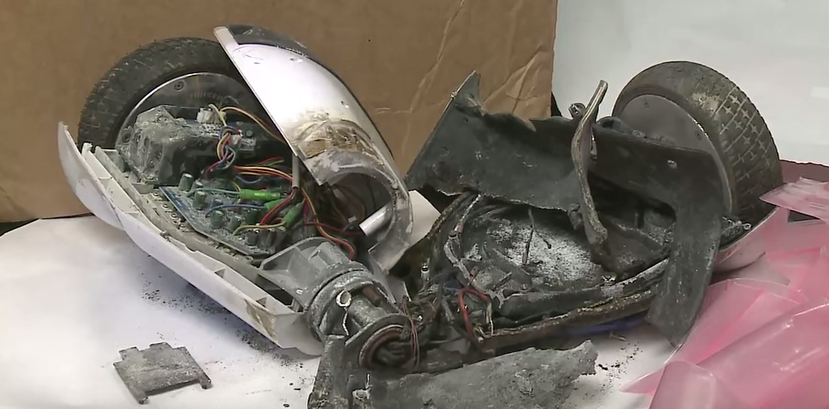Hoverboards That Don’t Comply With UL Safety Standards Now Considered Defective, Hazardous
 Amid multiple reports of “hoverboard” batteries exploding or catching on fire, the U.S. Consumer Product Safety Commission has determined that the self-balancing scooters are not safe unless they meet certain standards.
Amid multiple reports of “hoverboard” batteries exploding or catching on fire, the U.S. Consumer Product Safety Commission has determined that the self-balancing scooters are not safe unless they meet certain standards.
The CPSC recently sent out a notice [PDF] to retailers, manufacturers, and importers regarding this decision. It explains that the devices must comply with safety standards set by the Underwriters Laboratory.
UL, an independent safety consulting and certification company, announced last month that it would open the door to product submittals of self-balancing scooters, often called hoverboards, for “construction evaluation, testing, and/or UL certification,” noting that recent news reports of hoverboards catching fire show a need for the service.
The certification company’s standards and tests came after at least one hoverboard maker was accused of putting counterfeit safety marks on its products.
The scooters will be tested and certified using UL 2272, which covers the electric drive train including the rechargeable battery and charger system combination. UL has been evaluating, testing, and certifying battery cells and packs for years, as well as battery chargers and power supplies, the company said in a press release.
The CPSC on Thursday urged hoverboard makers and sellers to voluntarily take non-UL compliant scooters off the market immediately.
The CPSC “considers self-balancing scooters that do not meet the safety standards referenced above to be defective, and that they may present a substantial product hazard,” the notice states. “Consumers risk serious injury or death if their self-balancing scooters ignite and burn. … Should the staff encounter such products at import, we may seek detention and/or seizure. In addition, if we encounter such products domestically, we may seek a recall of these products.”
The notice, which makes it clear that if companies don’t fallow new safety standards they can face enforcement actions such as seizure of products and civil or criminal penalties, aims to hold device makers accountable for failing to comply with the safety standards.
“From Dec. 1, 2015 through Feb. 17, 2016, the CPSC received reports, from consumers in 24 states of self-balancing scooter fires resulting in over $2 million in property damage, including the destruction of two homes and an automobile,” the notice states. “We believe that many of the reported incidents and the related unreasonable risk of injuries and deaths associated with fires in these products would be prevented if all such products were manufactured in compliance” with UL safety standards.
The agency on Friday released a video detailing some of the tests it conducted of hoverboards.
CPSC chairman Elliot Kaye tells Mashable that the notice is the agency’s way of “drawing a line in the sand.”
“From our perspective, a smart retailer will put in place a stop sale to find out if their inventory complies with our standard. If they are certain that it doesn’t, they should then issue a recall proposal,” he said.
Mashable reports that the CPSC came to its decision, in part, after conducting a series of tests on hoverboards that included monitoring the voltage of devices while in use, inspection of circuit boards and batteries, examination of previously burned boards, and scans of the boards’ batteries.
While none of the tested hoverboards caught fire, the CPSC believes it had enough evidence to issue notices to manufacturers and retailers about the devices’ safety, Mashable reports.
Want more consumer news? Visit our parent organization, Consumer Reports, for the latest on scams, recalls, and other consumer issues.

